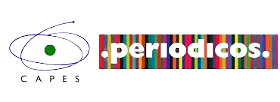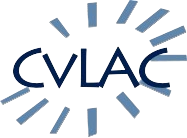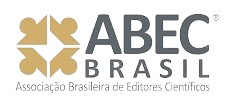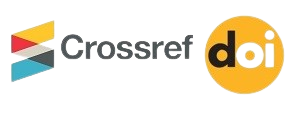About the Journal
Editorial policy
Focus and scope:
The Revista Insignare Scientia - RIS is a continuous flow publication of the Grupo de Estudos e Pesquisa em Ensino de Ciências e Matemática (GEPECIEM), linked to the Programa de Pós-Graduação em Ensino de Ciências (PPGEC) of the Universidade Federal da Fronteira Sul, Campus Cerro Largo – RS and aims to publish original research productions, experience reports, didactic proposals, reviews and biographies having as objects of discussion the Teaching of Science, its interfaces and its developments. The area of Science teaching and its Interfaces (focus and scope of the journal) comprises: education as a science, teaching as an area of scientific production and its subareas, such as: Environmental Education, Health Education, Astronomy Teaching, Mathematics Education, Biology Teaching, Physics Teaching, Geoscience Teaching and Chemistry Teaching, as well as developments and interfaces with themes in the area such as: Epistemology, History and Philosophy of Science, Curriculum, Teaching Methodologies, Language, Inclusive Education, Assessment, Information and Communication Technologies, Scientific Concepts, Differences, Gender, among others. Articles should focus on areas, sub-areas or themes that have a strong connection with the scope of the journal and present clearly explained contributions to Science Education. Any manuscript that relates to any of the subareas mentioned above (but not to their teaching area), as well as to general aspects of education or other areas (without a clear relationship or implication for the area of Science Education) will not be sent for evaluation.
The Insignare Scientia Journal will receive manuscripts on a continuous basis, but the general editor and area editors may organize calls and thematic volumes when appropriate.
The Insignare Scientia Journal (RIS) is Qualis/CAPES A4 (Evaluation area: 46 - Education)
Open Access Statement
The Insignare Scientia Journal - RIS is an open access publication, which means that all content is available for free, at no cost to the user or their institution. Users are allowed to read, copy, distribute, print, search, create links to the full texts of the articles, or use them for any other legal purpose, without asking prior permission from the publisher or the author. These principles are in accordance with the BOAI definition of open access.
Costs and charges for publication
The Insignare Scientia Journal - RIS is a free periodic publication with no charges to the author, meaning there are no processing fees or submission charges to RIS, nor for the publication/dissemination of accepted articles.
Declaration of the conditions of use and reuse of the contents
Insignare Scientia Journal is licensed under the Creative Commons Attribution 4.0 International License, which provides open and free access to all information and content.
Standards to be used in the articles
The publication standards are included in the Template for works, linked on this site.
The first version submitted MUST NOT contain identification of the authors in the body of the work. After the approval of the article, the insertion of the authors' names in the final model to be published in the journal will be requested.
Accepted work modalities:
Scientific texts that present original, theoretical, or empirical contributions related to Science Education and its various interfaces as outlined in the journal's scope will be accepted for possible publication.
The articles submitted for publication must be unpublished and cannot be under review in another vehicle. Communications made at congresses can be submitted as long as their scope is expanded, avoiding repetitions of complete works published in event proceedings. RIS publishes, above all, articles in Portuguese, but manuscripts submitted in Spanish or English may be published without translation when submitted by foreign authors. Theoretical articles should introduce new developments in the field of knowledge they explore and bring conclusions and implications for research and educational practice in the field of Science teaching. Empirical articles (with production of results) must present results that, examined with an appropriate theoretical framework, can result in new knowledge or in developments of its application in contexts different from those known. The authors are responsible for the originality and truthfulness of the content presented in the works. The linguistic and bibliographic review must be done before submitting the manuscript. Authors must indicate whether the research is funded and if there is a conflict of interest. The Editorial Committee may request the submission of authorization from the Research Ethics Committee, when deemed necessary. We also request that the ABNT normalization standards be observed. If a writing problem is identified in the submitted text, the Editorial Committee reserves the right to request a revision of the same, with costs borne by the authors. Texts of 3 to 20 pages are expected depending on the section and in the following formats for publication:
Articles: Unpublished text originating from scientific research in the area or sub-areas and themes within the scope of RIS. The results must be original and intended exclusively for this journal, not having been submitted or published in full in any other medium, and may have originated from academic works and works presented at scientific conferences, but never be (totally or partially) the same as these. In other words, the article must clearly be an expansion in relation to the initial work. Being the text with 15 to 20 pages.
Experience Reports: Section open for reports of experiences from professionals working in Science Education and its interfaces, both in formal and non-formal education. These are works resulting from educational investigations and reflections on significant, diverse, and interesting aspects in the field of teaching practices, that is, Teaching and Learning Sciences. Being the text with 8 to 15 pages.
Dissertations and Theses: Open section for extended abstracts of theses and dissertations by newly graduated researchers, recently completed works that are in the area of Science Teaching and its interfaces. These are works resulting from educational investigations and reflections on significant, diverse, and interesting aspects in the field of research in Education, Science Education. Being the text with 8 to 15 pages.
Didactic proposals: Section dedicated to the presentation of educational proposals, didactic strategies, teaching processes arising from research activities by teachers in schools, teaching programs, or at the University in the area of Science Education. Being the text with 8 to 15 pages.
Reviews: Section reserved for critical analysis of works by authors related to the theme of Science Education. Being the text with 3 to 5 pages.
Biographies: Section dedicated to the biographies of authors in the field of Education and Teaching, as well as researchers in the field of Science Teaching. Being the text with 6 to 8 pages.
Article template: Click here
Rejection rate in 2024: there were 47 rejected submissions, a total of 14%.
Average time for evaluation and publication of articles: 296 days.
Criteria adopted for selection/evaluation of submitted articles (peer review):
Criteria for judging the works and Guidelines for Evaluators:
The reviewers should guide their opinions on the manuscripts under review by the following guidelines:
-
The text is written objectively, in the standards of the language and organized;
-
The text has a structure compatible with a scientific document, framed in the appropriate section;
-
The manuscript is easy to read and understand;
-
The text has theoretical and conceptual basis;
-
The literature reflects a review of the state of the art;
-
The objectives and methodological procedures are clear;
-
The methodology is theoretically based and appropriate to the purposes of the study;
-
The results are properly analyzed with theoretical interleaving;
-
The conclusions are compatible with the objectives, methodology, and results presented in the text;
-
The text presents significant contributions to the field of knowledge;
-
The manuscript has originality.
-
We request that you send the plagiarism report (from 01-08-2024) in a separate file from the manuscript at the time of submission, that is, perform the verification of indications of plagiarism through the
link: https://uffs.turnitin.com. Download and send the report. If you have pointed out a similarity greater than 5%, write the respective justification for it in a separate file.
If the editorial decision indicates the need for reformulations and substantial revision indicating a new submission, the work enters the second round of evaluation, which should preferably be done by the same reviewers who participated in the first round.
In cases where not all criteria apply, such as in: reviews, biographies, theoretical works, some experience reports, didactic proposals, some of the criteria will be disregarded in the evaluation. Based on the criteria, each evaluator will indicate whether the submitted work should be Accepted, Accepted with minor revisions needed; Accepted with major changes in form, content, and corrections needing to be resubmitted, or Rejected.
Peer review:
RIS reserves the right to submit all originals preliminarily to the Editorial Board, which examines the suitability of the work to its editorial line.
The first author will be notified of the receipt of the manuscript within two weeks after submission. Subsequently, the articles are forwarded for confidential peer review (double blind peer-review). The manuscript will be submitted, without identifying the authors, to two referees who are researchers and specialists in the field. They will be invited from the initial list of Reviewers and Referees, which will be expanded due to new submissions. In case of disagreement between the opinions, a third arbitrator will be consulted. A notification regarding the final opinion of the manuscript should be sent to the authors. The referees are all active doctors in the field of education/science education/teaching and designated according to the criteria: 1. Have skills related to the submitted article; 2. Not having institutional or research group ties with the submission authors.
The editors commit to monitoring the process to ensure the speed and quality of the reviews. In case of an opinion conditioned to modifications in the text, the author will have 30 days to submit the modifications, otherwise the manuscript will be filed. The average time between submission and approval will be up to 12 months. The approved works make up the numbers of the Journal prioritizing the date of submission and approval and also the regional distribution of authors. The final texts are typeset and reviewed (language, spelling, and technical standards) and submitted to the authors for final verification before their publication on the journal's portal. Access to the journal is full and free on the UFFS periodicals portal: https://periodicos.uffs.edu.br/.
Peer review will ensure an opinion to be formulated by the editors that will reach the authors. The Editorial Board and the Scientific Council have the final authority to decide on the convenience or not of the publication, if necessary and in case of request from the editors.
Editorial Code of Conduct:
Publication Ethics Policy and Declaration of Improper Publication Procedures
This Journal (Magazine) is committed to ethics in research and publication of results. The standards of expected ethical behavior for all parties involved in publishing in our journal are paramount: the author, the journal editor, the reviewers, and the editor. Plagiarism is not accepted.
Editors' Duties:
Publication decision: The editor of the magazine is responsible for deciding which of the articles submitted to the magazine should be published. The editor is guided by the policies of the journal's editorial board and in strict observance of the legal requirements regarding copyright, code of ethics in research involving humans and animals, guiding the description of ethics committee approval when the research involves humans, complying with current legislation. The scientific editor can consult the area editors, the editorial board, and the scientific council in decision-making.
Fair Rules: The editor must evaluate manuscripts for their intellectual content, without distinction of race, sex, sexual orientation, religious belief, ethnic origin, nationality, or the political philosophy of the authors, always ensuring blind review.
Confidentiality: The editor and any editorial team must not disclose any information about a submitted manuscript to any other person, except the author, reviewers, evaluators, scientific and editorial board or committee, as the case may be.
Disclosure and Conflicts of Interest: The editor must not use information that has not been published in their own research without the express written consent of the author. The editor must refrain from reviewing manuscripts in which they have any conflict of interest, interactions with authors and/or institutions that are connected to the articles.
Participation and cooperation in investigations: The editor must take responsive measures when ethical complaints have been made regarding a submitted manuscript or published article.
2- Reviewers/Evaluators Duties:
Contribution to the Editorial decision: Peer review helps the editor in making editorial decisions and through editorial communications with the author can also assist the author in improving the article.
Punctuality: All reviewers must meet the deadlines set by the editor so that the journal can meet the publication policy deadlines. Any selected reviewer who does not feel qualified to review the manuscript or who finds it impossible to meet the deadlines should notify the editor and decline the review process, whenever applicable.
Confidentiality: The manuscripts under review are confidential documents, making it impossible for reviewers to disclose or even store files.
Objectivity Standards: Evaluations should be conducted objectively, expressing suggestions/corrections/opinions clearly, technically, and with well-founded arguments. It is possible to attach a file with corrections and suggestions.
Source Recognition: The evaluators, always in pairs, must inform current and relevant published works that have not been cited by the authors. The evaluator/reviewer must inform the editor about any similarity, overlap, partial or total copy between the manuscript in question and any other published document they are aware of, thus avoiding plagiarism and practicing the present policy.
Disclosure and Conflicts of Interest: Secrecy about any and all access to the evaluated manuscripts must be maintained. Reviewers should not evaluate manuscripts with conflicts of interest resulting from interactions with authors and institutions that are linked to the articles.
3- Duties of the Authors:
Manuscript/Article Standards: Authors must present an accurate writing of the research conducted or another form of publication accepted within the scope and sections as objective analyses. Data must be treated objectively in manuscripts. The manuscript must contain description, methodology, results, and references. A document must contain sufficient details and references to support the objectives, problems, and announced theses, as well as a clear methodology that allows the work to be replicated by other researchers when necessary. No result can be invented and disconnected from the research or original manuscript.
Originality and Plagiarism: Authors must ensure that their manuscripts are original, citing works/words and authors, when applicable, duly referenced in the manuscript's references. When it comes to biographies of researchers, authorization from the subject must be presented. Any kind of plagiarism will be unacceptable in this publication.
Multiple, redundant, or concurrent publications: Authors should not simultaneously submit manuscripts that essentially describe the same research to different journals. Submitting or publishing the same article in different journals will be considered unethical and therefore unacceptable. Authors are allowed to withdraw the submission from the Journal before its publication.
Source Recognition: Authors should cite and reference publications that have been influential in the research area and the publication of the submitted manuscript. Any data from interviews, questionnaires, direct observations that are not from the authors themselves must be expressly authorized, considering in this case that it is the authors' obligation to submit to ethics committees and councils in human research according to current legislation in Brazil and as provided by the universal declaration of ethics and research with human beings of an international character.
Article Authorship: Authors are considered to be researchers who made a significant contribution to the planning and execution of the research, construction of the results, and writing of the manuscript. All authors must agree and have approved the submission and the final version of the document for publication. Each manuscript can have up to four authors according to RIS submission policy.
Disclosure and Conflicts of Interest: All authors must prioritize ethical aspects, and submissions that have a conflict of interest with the journal, institutions related to the authors, or of any nature indicating the conflict are not allowed. All sources of financial support for the research must be disclosed in the manuscript.
-
Fundamental errors in published works: It is the author's obligation to notify the journal editor and cooperate with the editor to retract or correct any error or inaccuracy published in their article.
Publisher Duties
Advertising funds and other revenues, if any, will have no impact or influence on editorial decisions.
Plagiarism Policy
link: https://uffs.turnitin.com is the originality verification and plagiarism prevention software.
The articles are reviewed to ensure the quality of scientific publications, as well as submitted to direct checking in Turnitin for plagiarism identification.
This Ethics Policy is based on the Directory of Open Access Journals (DOAJ), the editing rules and policy of the Elsevier Network, and the Best Practice Guidelines for Journal Editors (COPE).
Copyright
The works published in RIS follow the usage license of the journals and research in all environments, commercial or not, that make up the international scientific communication system. The journal is licensed under the Creative Commons Attribution 4.0 International License.
The RIS publishes works, preferably, with up to four authors. At the time of submission of the work, the names of all authors must be provided. Furthermore, the author(s) are aware that they can have a maximum of two publications per year in the RIS.
The editorial team authorizes free access and unrestricted distribution of published content, provided the source is cited, that is, credit is given to the authors and RIS, and the text is preserved in its entirety. The author is allowed to deposit pre-print and post-print versions in institutional/thematic repositories or personal page (site, blog), as long as it is open access and without any embargo period.
Financial support: Universidade Federal da Fronteira Sul - UFFS
Filing
This journal uses the LOCKSS system to create a distributed file system among participating libraries and allows them to create permanent archives of the journal for preservation and restoration.





















